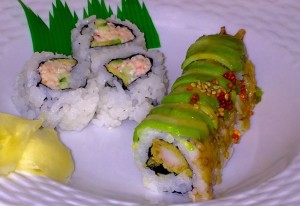By Constantine Mittendorf
Ever wonder if that sashimi you ordered is really bluefin tuna? Well, the San Diego County City Attorney’s Office recently announced that it has been criminally prosecuting instances of sushi mislabeling.
“DNA testing found that one-third (33 percent) of the 1,215 samples analyzed nationwide were mislabeled“
As you may know, mislabeling fish in sushi restaurants is not uncommon. Fish can vary widely in price depending on the species, but can appear to be very similar when cut into a fillet. For example, red snapper is more expensive than farmed tilapia, but it’s hard to tell the difference when served in a sushi roll. This has tempted many sushi restaurants to falsely market their sushi menus as including expensive delicacies, when they really serve a cheap imitation.
In fact in 2012, Oceana (an ocean conservation and advocacy organization) published a major seafood fraud investigation to determine if fish was honestly labeled in retail outlets and restaurants. According to the study:
“DNA testing found that one-third (33 percent) of the 1,215 samples analyzed nationwide were mislabeled, according to U.S. Food and Drug Administration (FDA) guidelines. Of the most commonly collected fish types, samples sold as snapper and tuna had the highest mislabeling rates (87 and 59 percent, respectively), with the majority of the samples identified by DNA analysis as something other than what was found on the label. In fact, only seven of the 120 samples of red snapper purchased nationwide were actually red snapper. The other 113 samples were another fish.”
Similarly, government investigators found recent instances of sushi mislabeling in San Diego. They found local sushi restaurants had substituted cheap crawfish and pollack instead of more expensive lobster in sushi rolls. In fact, inspections by the City’s investigator and the California Department of Fish and Wildlife found no lobster at all in any of the offending businesses.
This time instead of merely publishing its findings, the City Attorney filed criminal charges. So far, investigators fishing have netted eight sushi restaurants. Each restaurant has pled guilty, resulting in fines and fees reimbursing the costs of the underlying investigations. Considering the widespread scale of fish-mislabeling, we may see a rising tide of government agencies trolling for lobster imposters in the near future.

